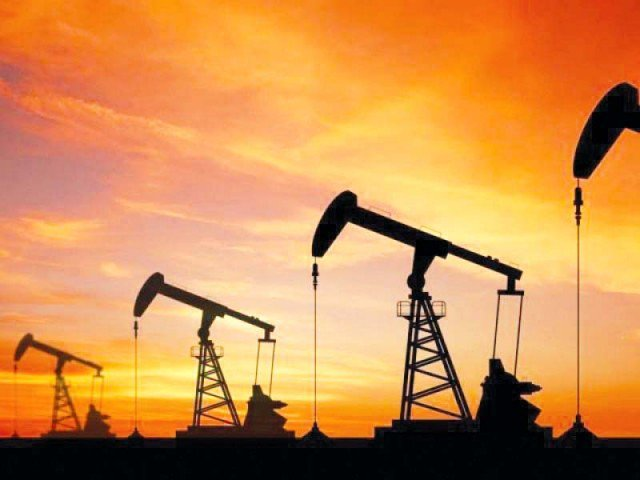Global oil price volatility may add to trade deficit woes
Govt faces daunting task of arresting the runaway deficit

Govt faces daunting task of arresting the runaway deficit.
PHOTO: FILE
According to data released by the Pakistan Bureau of Statistics (PBS), the trade deficit in August 2018 was $2.98 billion, which was less than the deficit for July 2018 and August 2017, when the gap was $3.19 billion and $3.06 billion respectively.
The month-on-month decrease in August 2018 was 6.8% and the year-on-year dip was 2.87%. The cumulative deficit in the first two months (July and August) of FY19 was $6.17 billion. In the same period of FY18, the deficit was $6.25 billion.
The depreciation of the rupee, grant of export incentives and a restructuring of the import bundle may have contributed to the decline in the trade deficit. However, it must be emphasised that volatility in global crude oil prices can add to the deficit.
As the rupee depreciated to more than Rs128 in mid-July 2018, the real effective exchange rate (REER), reported by the State Bank of Pakistan (SBP), fell to 108.37. It was for the first time since June 2014 that REER was below 110.
Government likely to keep oil prices unchanged
This suggests that the caretaker government was determined to reduce the overvaluation of the rupee as it allowed the currency to settle close to its equilibrium value.
However, the PBS data suggests that imports did not actually decrease in July and August 2018. The reduction in trade deficit is primarily being driven by the rise in exports, which has outpaced the increase in imports. With exports in August 2018 exceeding $2 billion, the month-on-month increase was 22.54%. Similarly, cumulative exports in first two months of FY19 stood at $3.6 billion, up 5% from the same period of previous year. On the other hand, imports increased by just 1% in the same period.
However, the SBP data suggests that the trade deficit may have increased in first two months of FY19 relative to that of FY18. The data from the two government agencies has some discrepancy as the SBP considers banking transactions to calculate exports and imports while the PBS uses Customs data.
The SBP has reported month-on-month increase in exports in August 2018. Imports in the month were lower than in July 2018. The last such occasion where month-on-month growth in exports was accompanied by a month-on-month decrease in imports was in August 2017.
Commodities
According to commodity data reported by the SBP, exports of petroleum group and other manufactures increased in August 2018 from July 2018. The month-on-month growth in exports of food group and textile group was negative.
Petrol price hiked to Rs99.5 per litre
On the other hand, the year-on-year growth in August 2018 was positive for all commodity groups except for ‘other manufactures’.
The year-on-year growth in exports of food products such as rice, wheat, sugar, spices and fruits was positive. However, there was only a small percentage increase in exports of major commodities within the textile group such as bed wear, knitwear and readymade garments.
The cumulative exports for both food and textile groups in July and August FY19 were higher than the exports reported for the same period of FY18.
Commodity import data of the SBP indicates a month-on-month decline across all major groups in August 2018. Furthermore, although overall imports increased year-on-year in August 2018, the import of food, machinery, transport and metal groups fell.
Imports of power generating machinery decreased from around $243 million in August 2017 to $56.5 million in August 2018. Imports of electrical machinery and apparatus dropped from $139.9 million to $88 million. Imports of petroleum group rose 34% in August 2018 over August 2017, which was mainly driven by the increase in imports of crude oil and LNG.
PBS data shows a 6% fall in the quantity of crude oil imports, but a rise of 64% in terms of value in dollars. On the other hand, imports of refined petroleum products fell in terms of both volume and value.
According to SBP import statistics, the largest decline was in the machinery group as imports of power generation machinery in the first two months of FY19 stood at $141.5 million compared to $394.3 million in the first two months of FY18.
However, imports of completely knocked-down vehicles increased from $194 million to $299.7 million. Imports of petroleum group rose more than 50%, which was driven by more than double the imports of crude oil and LNG.
Imports of fertilisers and raw cotton increased more than 80% in the aforementioned period. The pattern suggests a restructuring of the import bundle as focus has shifted from capital goods, primarily driven by CPEC-related projects, to crude oil and raw material.
The new government must adopt policies that boost exports in the long run rather than providing short-term relief for exporters. Participation in global value chains must be encouraged.
It must also be prepared for an increase in imports with the rise in global oil prices. The government must also be wary of rising costs associated with CPEC-related imports.
Finally, it should ensure that imports through informal channels are discouraged and should avoid stringent tariff policies that encourage imports through smuggling and informal channels.
The writer is Assistant Professor of Economics and Research Fellow at CBER, IBA
Published in The Express Tribune, October 15th, 2018.
Like Business on Facebook, follow @TribuneBiz on Twitter to stay informed and join in the conversation.


















COMMENTS
Comments are moderated and generally will be posted if they are on-topic and not abusive.
For more information, please see our Comments FAQ